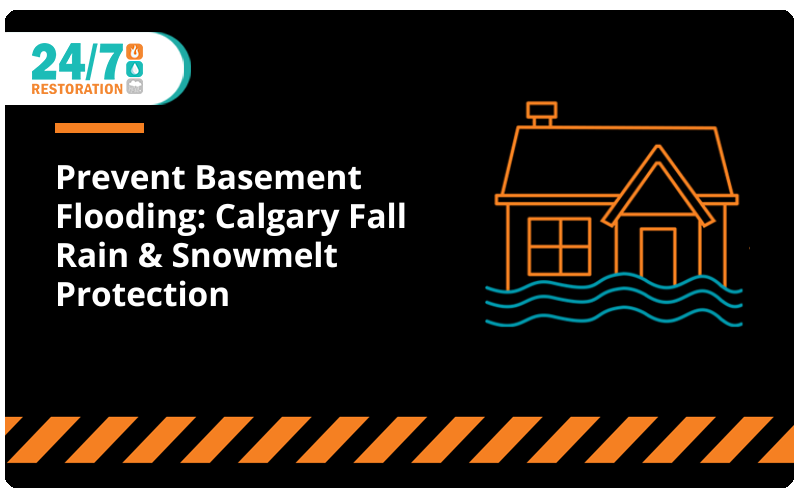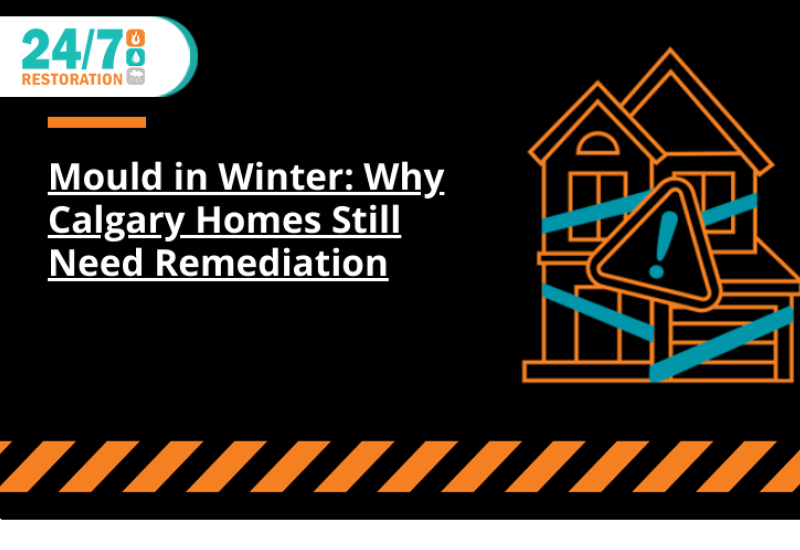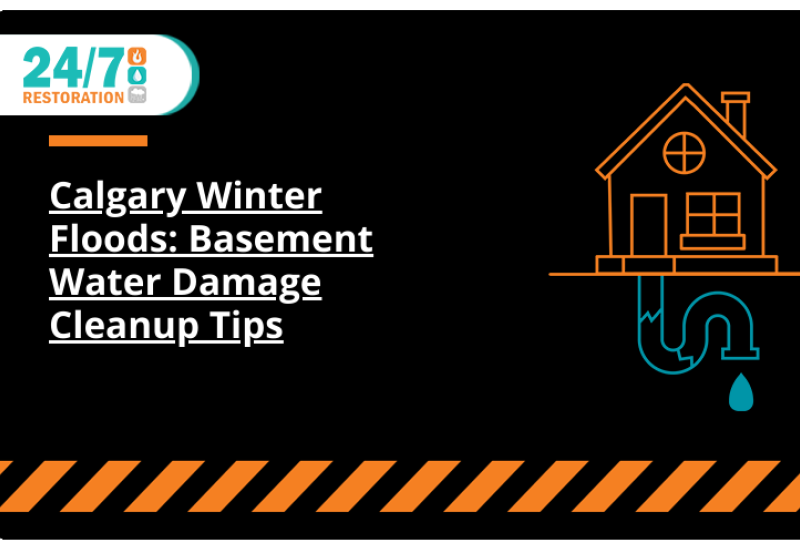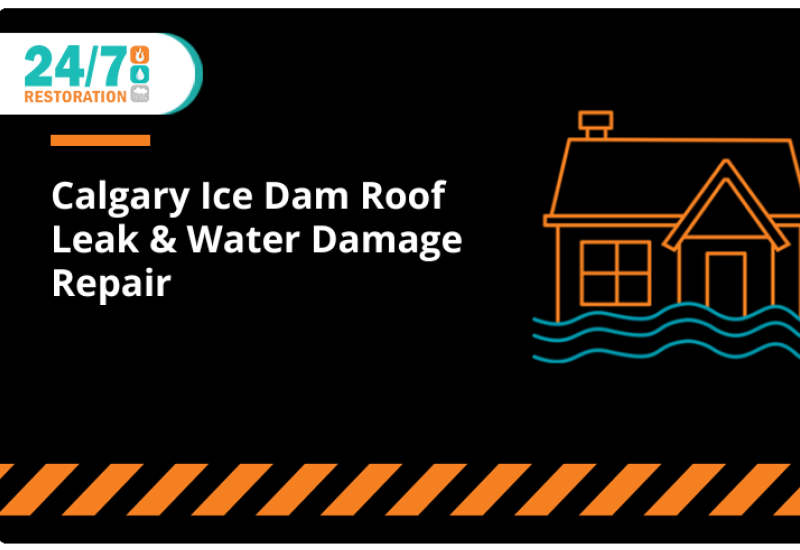Why Fall Brings Basement Flooding Risks
Fall weather in Calgary often brings sudden rainstorms, melting snow, and fluctuating temperatures. These conditions place extra stress on basements, where small cracks or poor drainage can allow water to seep in. Left unchecked, even a little moisture can damage flooring, drywall, and electrical systems. For many homeowners, the first warning sign of water damage is already too late. Preventing basement flooding requires preparation, regular maintenance, and the knowledge of when to call in professionals like 24/7 Restoration.
Prevention Tips from 24/7 Restoration
1. Maintain and Test Your Sump Pump
Your sump pump is your basement’s first line of defence against flooding. In Calgary, sudden downpours or rapid snowmelt can overwhelm foundations, making sump pumps essential. Test yours by pouring water into the pit to ensure it activates properly, and check the discharge line to confirm water is flowing away from your home. Adding a battery backup is smart, since heavy storms often trigger power outages at the exact moment you need protection most.
2. Clean Gutters and Downspouts
Gutters clogged with leaves and debris force water to spill over and pool near your foundation. In fall, Calgary’s combination of leaves, pine needles, and early snow can clog systems quickly. Cleaning your gutters ensures water flows away safely, reducing pressure on your basement walls. Make sure downspouts extend at least two metres away from the house to keep water from seeping into the soil right next to your foundation.
3. Inspect Basement Walls and Floors for Cracks
Small cracks in foundation walls or basement floors may seem harmless, but they are common entry points for water. Calgary’s freeze-thaw cycles make these cracks expand over time, allowing more water to seep through. Use waterproof sealant for minor issues, but don’t ignore larger cracks. Professional repair may be needed to prevent ongoing leaks and structural damage.
4. Check Grading Around Your Home
The slope of the soil around your home should direct water away from your foundation. Unfortunately, settling or landscaping changes can cause low spots that allow water to pool near basement walls. Over time, this pooling increases hydrostatic pressure, making leaks more likely. Adding topsoil or regrading problem areas ensures water flows safely away.
5. Install a Backwater Valve
During major storms, Calgary’s municipal sewers can become overloaded, leading to dangerous sewage backups. A backwater valve stops wastewater from flowing back into your basement through floor drains. For many homes, this simple device is a vital safeguard that prevents some of the most damaging — and unsanitary — types of flooding.
6. Monitor Indoor Humidity Levels
Flooding isn’t the only water risk. Excess moisture inside your basement can cause condensation, mould growth, and long-term air quality issues. Use a dehumidifier in damp spaces and monitor humidity with a hygrometer. Ideally, indoor humidity should stay between 30% and 50%. Controlling moisture helps prevent hidden damage even if no obvious flooding occurs.
7. Know When to Call a Professional
Some tasks, like cleaning gutters, are manageable for most homeowners. But if you notice recurring leaks, sewage odours, or widespread dampness, it’s time to call in experts like 24/7 Restoration. We provide complete water damage assessments, emergency extraction, and structural drying to prevent long-term problems. Acting quickly reduces costs, limits disruption, and keeps your home safe.
Protect Your Calgary Home from Basement Flooding
Basement flooding doesn’t just ruin personal belongings; it can weaken your home’s foundation and create lasting problems with mould and air quality. At 24/7 Restoration, we provide fast, expert water damage cleanup and repair for Calgary homeowners. Whether you’re facing an emergency flood or want to prepare for the season, our team is available around the clock. Contact us today to safeguard your home and restore peace of mind.
FAQs
Q: What causes basement flooding in Calgary during fall?
A: Heavy rainfall, early snowmelt, clogged gutters, and poor grading are the most common culprits.
Q: How can I tell if my basement is at risk of flooding?
A: Look for cracks in the foundation, water stains, or a musty smell, which may indicate past or current leaks. Need an expert opinion? Contact 24/7 Restoration today and our team will help assess the potential for flooding and water damage.
Q: What is a backwater valve, and should I install one?
A: A backwater valve prevents sewage from backing up into your basement during storm surges. It’s highly recommended in Calgary.




